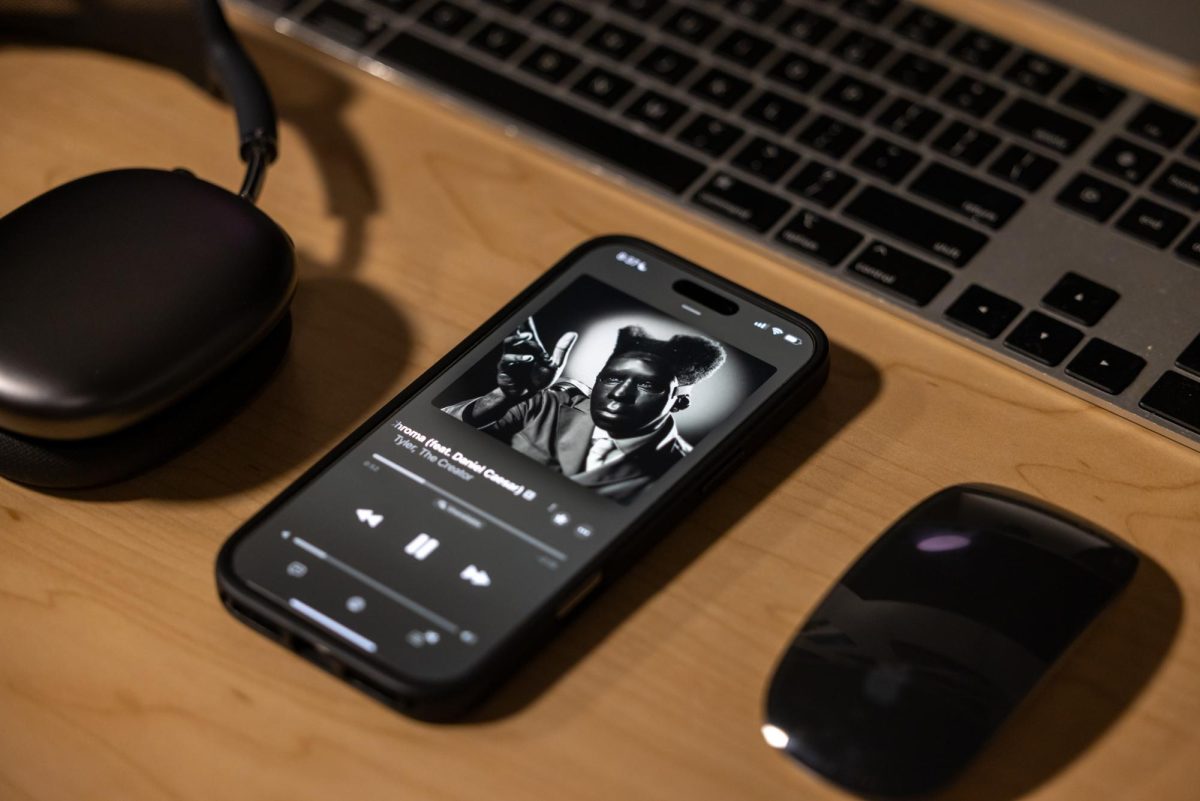Unknown Mortal Orchestra’s new EP Blue Record will make you squirm with its severe sweetness. The album is an acoustic assemblage of both covers (“Puttin’ It Down” and “Swing Lo Magellan”) and the band’s own songs from the album II. Blue Record is an interruption of UMO’s usual bass-laden and hazy tracks, which characterize their debut self-titled album and II. Instead, Blue Record gives listeners a little something more to ponder.
The American-New Zealand band, formed by Ruban Nielson, released its acclaimed first album in 2011, which boasted a Grizzly Bear-esque rhythm, experimental noises and Nielson’s muffled voice. The majority of the songs rumble with a shy drumbeat and a background sizzle that resembles the sticky, dusty crackle of an old record player. A unique sound emerged with II, on which Nielson seemed to embrace his guitar skills and the natural eclecticism of his voice. II is the basis of Blue Record, which Nielson recorded in his basement with an acoustic guitar. Although Blue Record is Nielson’s baby, it still reflects the band coming into its own and creating a full, affecting sound that redefines the genre.
The sounds of Blue Record are fresh, heartbreaking, enlivening and soothing all at the same time, and they create a light groove and a moving tranquility. The lyrics, sung with a soft and tender appeal, speak with vague connotations of heartbreak and ennui. The band has obviously internalized its own philosophy on mortality (as implied by its name alone). The songs combine fluid fingerpicking with surprisingly downcast lyrics. “Swim & Sleep (Like a Shark)” rings like a sweet lullaby, but perpetuates a deep lethargy with ridiculously depressing lyrics: “I wish I could break and end like the world does…I’d let you crush me.” There’s something incredibly moving about the band’s ability to obscure a deep melancholy beneath alternative beats and notes that are not exactly uplifting, but deceptively complacent.
A highlight is the cover of Dirty Projector’s “Swing Lo Magellan,” which resonates heavily through Nielson’s voice. His self-conscious, melodic timbre is so effortlessly calming that the words seem to dissolve into each other: The lyrics become a range of rhythms and syllables that just barely catch the ear. Yet if a listener can take in the lyrics and make something of them, they create poetry within the song that makes it all the more memorable. Another standout track, “So Good at Being in Trouble,” with a short sequence of lyrics and a lasting echo, is addicting in its simplicity, beautiful in its more obvious moroseness.
Blue Record sounds, feels and sticks in its nostalgic sweetness. The album’s organic harmony screams above the unnecessary loudness of modern pop galore and creates something inexplicably special.
4.5 out of 5 stars




















